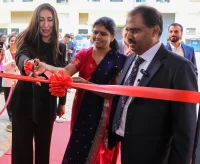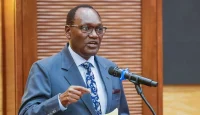Vision 2030 Delivery Secretariat Director-General Kenneth Mwige in a radio interview with Spice FM on Monday, September 13 offered insights into the biggest hurdles standing in the way of the the plan.
Vision 2030 is a long-term development blueprint aimed at transforming Kenya into a newly industrializing, middle-income country providing a high quality of life to all its citizens by 2030 in a clean and secure environment.
Mwige cited competing political and financial interests, flawed procurement processes, disjointed planning, poor coordination, lack of a strong legal foundation for the Vision 2030 Delivery Secretariat as well as a major communication problem among the obstacles hindering implementation of various projects.
“To get any project off the ground is a miracle in itself,” he admitted, noting that they needed to jump through several hoops to ‘line up all the ducks in a row’.
READ>>>>>Vision 2030 Bets on Good Governance for Private Sector Investments
He, however, maintained that despite negative perceptions by the public on the state of Vision 2030, the government’s development projects were aligned with the Vision and its Medium Term Plans, offering the examples of infrastructure projects and initiatives to provide easier access to government services.
He further highlighted what he termed a citizen communication deficit – admitting that they needed to do more to engage members of the public to shape the Vision and contribute to its actualization.
Decrying what he termed the ‘Serikali Saidia‘ (Government, help us) mentality, Mwige asserted that citizens needed to become ’empowered participators’ in the Vision 2030 process.
Mwige agreed that the Vision 2030 Delivery Secretariat needed to be anchored in Law as opposed to being under the State Department for Planning. Legal backing would notably create a channel of direct engagement between the technocrats executing the vision and citizens through their representatives in Parliament.
“A strong legal foundation is needed to create a better mechanism (for Vision 2030) to report to the people,” Mwige asserted.
Mwige also stated that the focus of government needed to be on strengthening the economy, advising political parties and aspirants to factor the same while drafting their priorities.
“The focus should be on the economy, putting money in people’s pockets,” he maintained.
READ>>>>>Power Blackouts Will Derail Vision 2030

![Kenneth Mwige agreed that the Vision 2030 Delivery Secretariat needed to be anchored in Law as opposed to being under the State Department for Planning. [Photo/ Vision2030.go.ke]](https://businesstoday.co.ke/wp-content/uploads/2021/09/kenneth_mwige-562x375-1.jpg)











Leave a comment